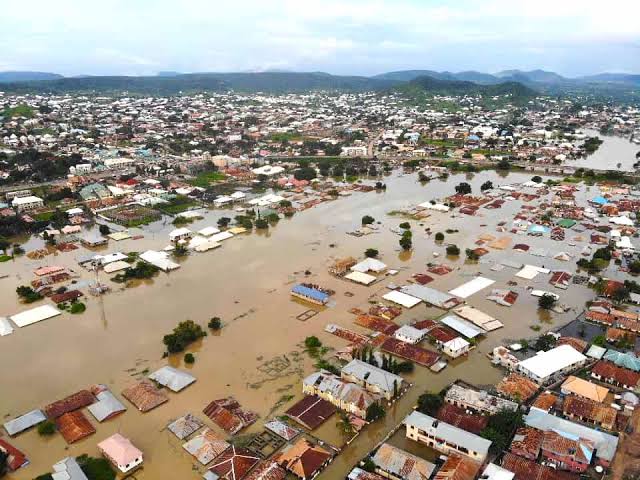Residents of Lekki, Ikoyi, and Ajah in Lagos were forced to abandon their luxurious homes after a relentless 10-hour rainfall turned streets into rivers and inundated properties on July 4, 2024.
The heavy downpour led to severe flooding, causing substantial damage to homes and belongings, and driving many residents to seek refuge in hotels.
The persistent rain caused widespread devastation, with videos circulating online showing floating furniture, electronics, and children’s toys. Many residents were seen navigating through murky waters, trying to salvage whatever they could from their homes.
The flooding exposed significant urban planning and infrastructure issues in these affluent neighborhoods, raising questions about the responsibilities of the government and residents in addressing these recurrent disasters.
Roads in Lekki Phase II became impassable, and many homes were left abandoned as residents fled the rising waters. The floodwaters damaged or destroyed properties worth millions, with cars, furniture, and electronics among the most affected.
In one compound, three cars were half-submerged, requiring expert mechanics to restore them to working condition.
Experts have pointed to the construction of buildings on floodplains and inadequate drainage systems as primary causes of the recurrent flooding. The Lagos State Commissioner for the Environment and Water Resources, Mr. Tokunbo Wahab, had warned against building on drainage setbacks.
Despite these warnings, many structures in Lekki, Ikoyi, and Ajah are built on reclaimed land, making them naturally prone to flooding.
The Lagos State Emergency Management Agency (LASEMA) issued a directive urging residents to remain calm and minimize outdoor activities. The agency’s Permanent Secretary, Damilola Oke-Osanyintolu, assured that emergency services were on high alert to provide necessary assistance.
The National Emergency Management Agency (NEMA) also provided guidelines to mitigate flooding risks, emphasizing the importance of clearing solid waste that blocks drainage systems and avoiding construction on waterways.









